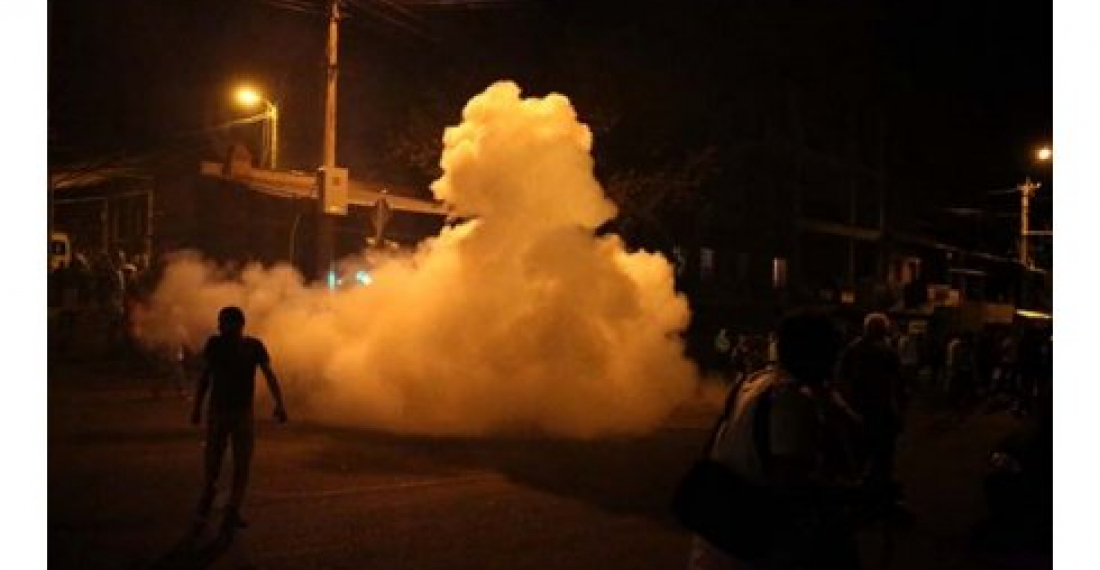The situation in the district of Erebuni in the Armenian capital Yerevan took a turn for the worse overnight after clashes between police and sympathisers of a group of men who last Sunday forcefully occupied a police station, killing one officer and injuring several others.
The protestors were demanding that food be provided to the armed men inside the police station.
Police used tear gas and taser guns to break up the protests. Dozens of people have been arrested.
Several credible reports have been posted on social media claiming police abuse before and after the arrests. A prominent foreign resident in the Armenian capital posted on his facebook page that a source he trusts had reported "Today I woke up at 5am to the sounds of police officers beating up the protesters of Khorenatsi street in the courtyard of the police station (clearly visible through my window). Around ten police officers had rounded up a single person and were hitting him from all sides, cursing loudly".
Several NGOs are also reporting heavy handed police tactics around the Erebuni police station.
This morning, Armenian Prime Minister Hovik Abrahamyan said that the situation was worrying. Abrahamian was speaking at a meeting of the Cabinet of Ministers. Abrahamyan described the violence on Sunday as “impermissible and reprehensible, since it is impossible to achieve real change through violence”. He was quoted by media sources as saying that the situation is worrisome, and the authorities have done and will do everything to achieve a peaceful solution.” Abrahamyan is so far the only Armenian official to comment about the situation in Erebuni since the violent incident on Sunday.
source: commonspace.eu with news.am, hetq.am and other sources.
photo: Armenian police used tear gas to disperse protestors around the Erebuni police station on Wednesday night (20 July). Picture courtesy of Nalek Alexsanyan (Hetq.am)







